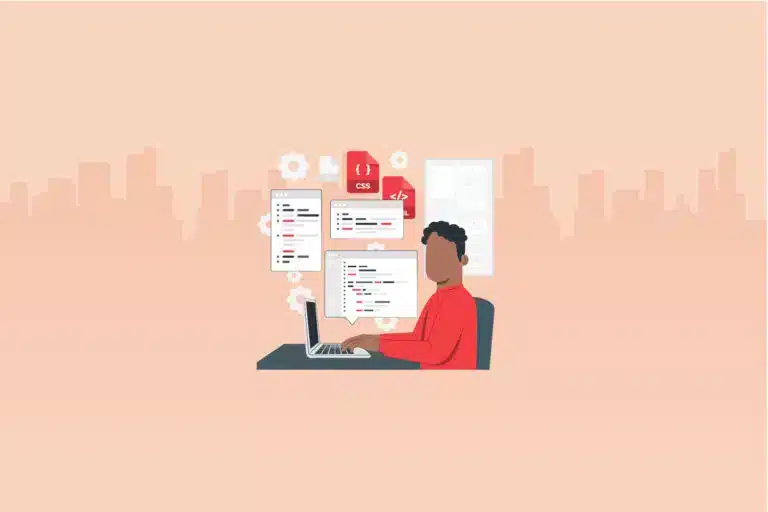The role of a Demand Planner has become increasingly critical in today’s dynamic business landscape. With the growing emphasis on data-driven decision-making and the need for efficient supply chain management, organizations are actively seeking skilled professionals who can navigate the complexities of demand forecasting and planning.
As the recruitment trend for Demand Planners continues to rise, HR professionals and CXOs must understand the analytics-driven nature of this role and its impact on business performance. By harnessing the power of advanced analytics, Demand Planners can accurately anticipate customer demand, optimize inventory levels, and drive operational efficiency. In this context, it is imperative to craft interview questions that assess candidates’ proficiency in demand planning, statistical analysis, and their ability to leverage data insights for strategic decision-making.
Here are the top 60 Demand Planner interview questions to ask job applicants:
15 general interview questions for Demand Planner
- Can you explain the importance of demand planning in optimizing supply chain operations and ensuring customer satisfaction?
- Describe your experience with demand forecasting methods and techniques. Which methodologies have you found most effective, and why?
- How do you approach data analysis and interpretation in demand planning? Share an example of how you have used data insights to drive decision-making in your previous role.
- What steps do you take to collaborate with cross-functional teams, such as sales, marketing, and production, to gather relevant inputs for demand forecasting?
- How do you handle demand variability and uncertainty in your planning process? Can you provide an example of a challenging scenario you encountered and how you addressed it?
- Have you worked with any demand planning software or tools? Which ones are you familiar with, and how have you utilized them to enhance your planning capabilities?
- How do you ensure alignment between demand plans and inventory levels? How do you balance the need for optimal inventory and customer satisfaction?
- Can you discuss your experience with sales and operations planning (S&OP) processes? How have you contributed to the development and execution of S&OP strategies?
- Describe a situation where you had to resolve conflicts or disagreements between demand forecasts and actual sales. How did you manage the situation, and what were the outcomes?
- How do you stay updated with market trends, customer preferences, and industry dynamics that impact demand planning? Provide examples of how this knowledge has influenced your planning decisions.
- How do you assess and mitigate risks associated with demand fluctuations, supply disruptions, or other external factors that may impact the accuracy of your forecasts?
- Can you share an experience where you identified opportunities for process improvement in demand planning? How did you implement those changes, and what were the outcomes?
- How do you track and measure the effectiveness of your demand planning strategies? What key performance indicators (KPIs) do you use, and how do you leverage those metrics to drive continuous improvement?
- Can you discuss your experience in managing demand planning projects or leading a team of demand planners? What were the challenges you faced, and how did you overcome them?
- How do you approach demand planning in a rapidly changing and volatile market? How do you adapt your strategies and forecasts to accommodate such dynamic conditions?
5 sample answers to general interview questions for Demand Planner
- Can you explain the importance of demand planning in optimizing supply chain operations and ensuring customer satisfaction?
Look for: An understanding of the impact of demand planning on supply chain efficiency and customer experience.
Answer: Demand planning plays a pivotal role in optimizing supply chain operations and meeting customer expectations. By accurately forecasting demand, we can align production, inventory, and logistics to avoid stockouts or excess inventory. This leads to improved operational efficiency, cost savings, and reduced lead times. Additionally, demand planning enables us to proactively respond to customer demands, ensuring timely deliveries and a high level of customer satisfaction.
- Describe your experience with demand forecasting methods and techniques. Which methodologies have you found most effective, and why?
Look for: Familiarity with different demand forecasting methods and an ability to explain their effectiveness based on experience.
Answer: In my previous role, I utilized various demand forecastings methods such as time series analysis, regression analysis, and market research. One of the most effective methodologies I have found is the use of statistical models, such as moving averages and exponential smoothing, combined with historical data analysis. These models provide accurate forecasts by identifying patterns and trends in demand. Additionally, incorporating qualitative inputs from sales and marketing teams helps refine the forecasts further, particularly when launching new products or entering new markets.
- How do you approach data analysis and interpretation in demand planning? Share an example of how you have used data insights to drive decision-making in your previous role.
Look for: Proficiency in data analysis and the ability to provide a specific example of using data insights for decision-making.
Answer: Data analysis is a crucial aspect of demand planning, and I am proficient in leveraging data insights to drive decision-making. In a previous role, I conducted a thorough analysis of historical sales data, market trends, and promotional activities to identify seasonality patterns. By understanding the seasonal demand fluctuations, I recommended adjusting production schedules and inventory levels accordingly. This proactive approach allowed us to optimize inventory management, reduce stockouts during peak seasons, and minimize excess inventory during slower periods.
- What steps do you take to collaborate with cross-functional teams, such as sales, marketing, and production, to gather relevant inputs for demand forecasting?
Look for: Strong communication and collaboration skills, along with a proactive approach to working with cross-functional teams.
Answer: Collaboration with cross-functional teams is crucial for gathering inputs and ensuring the accuracy of demand forecasts. I actively engage with sales, marketing, and production teams to gather market intelligence, customer feedback, and sales forecasts. Regular meetings, joint planning sessions, and open communication channels are essential for capturing their insights and aligning them with the demand planning process. By fostering strong relationships with these teams, we can ensure the incorporation of their valuable inputs, improving forecast accuracy and the overall effectiveness of demand planning.
- How do you handle demand variability and uncertainty in your planning process? Can you provide an example of a challenging scenario you encountered and how you addressed it?
Look for: Adaptability, problem-solving skills, and an ability to handle uncertain demand situations.
Answer: Demand variability and uncertainty are inevitable challenges in demand planning. To address this, I employ a combination of statistical techniques and proactive monitoring of market conditions. In a recent scenario, unexpected supply chain disruptions caused a sudden spike in demand for a particular product. I quickly assessed the situation by analyzing sales data, customer feedback, and market trends. By collaborating with the production team, we prioritized the production schedule, increased stock levels, and expedited logistics to meet the increased demand. This enabled us to fulfill customer orders promptly and minimize any potential negative impact on customer satisfaction.
15 behavioral interview questions for Demand Planner
- Describe a time when you had to handle a sudden surge in demand. How did you manage the situation and ensure timely delivery of products?
- Can you share an example of a forecasting error you encountered in your previous role? How did you identify the error, and what steps did you take to rectify it?
- Tell us about a time when you collaborated with cross-functional teams to develop a demand plan for a new product launch. How did you ensure alignment and gather relevant inputs from different stakeholders?
- Describe a situation where you had to balance conflicting demands from different regions or customer segments. How did you prioritize and allocate resources effectively?
- Share an example of a challenge you faced in accurately forecasting demand for a seasonal product. How did you overcome this challenge and adjust your planning approach?
- Can you discuss a time when you identified and implemented process improvements in demand planning that resulted in enhanced efficiency or accuracy?
- Tell us about a time when you faced a significant supply chain disruption. How did you manage the impact on demand planning, and what steps did you take to mitigate risks?
- Describe a situation where you had to make trade-offs between customer demand and production constraints. How did you approach the situation, and what were the outcomes?
- Share an example of a successful demand planning project you led. What were the goals, challenges, and outcomes of the project?
- Describe a time when you had to communicate a significant deviation from the forecast to stakeholders. How did you manage their expectations and mitigate potential business impacts?
- Tell us about a situation where you had to handle demand uncertainty due to market volatility or external factors. How did you adapt your planning strategies and ensure business continuity?
- Share an example of a time when you identified a trend or opportunity in demand patterns that others might have overlooked. How did you leverage this insight to drive strategic decision-making?
- Describe a situation where you had to resolve conflicts or disagreements between demand planners and other departments. How did you facilitate alignment and ensure a collaborative approach?
- Tell us about a time when you successfully implemented a demand forecasting tool or software. How did this tool improve your forecasting accuracy and efficiency?
- Share an example of a challenging situation where you had to influence stakeholders to adopt a different demand planning approach. How did you navigate resistance and gain buy-in for the new approach?
5 sample answers to behavioral interview questions for the Demand Planner
- Describe a time when you had to handle a sudden surge in demand. How did you manage the situation and ensure timely delivery of products?
Look for: Ability to handle high-pressure situations, problem-solving skills, and effective coordination with cross-functional teams.
Answer: In my previous role, we experienced an unexpected surge in demand due to a viral social media campaign. To manage the situation, I immediately coordinated with the production team to increase output and expedite manufacturing schedules. I worked closely with logistics partners to ensure prioritized shipments and minimize transit times. By closely monitoring inventory levels and collaborating with the sales team to manage customer expectations, we were able to fulfill the surge in demand and deliver products on time without any stockouts.
- Can you share an example of a forecasting error you encountered in your previous role? How did you identify the error, and what steps did you take to rectify it?
Look for: Analytical skills, attention to detail, and the ability to learn from mistakes and take corrective action.
Answer: In one instance, a forecasting error occurred due to an inaccurate assumption about a promotional campaign’s impact on demand. I identified the error by comparing the actual sales data against the forecasted figures. To rectify the situation, I conducted a thorough analysis of the factors that led to the discrepancy. I then refined the forecasting models by incorporating historical promotion data, aligning the forecast with marketing plans, and validating it with sales team inputs. This process helped me improve the accuracy of future demand forecasts and avoid similar errors.
- Tell us about a time when you collaborated with cross-functional teams to develop a demand plan for a new product launch. How did you ensure alignment and gather relevant inputs from different stakeholders?
Look for: Collaboration and communication skills, the ability to coordinate and integrate inputs from diverse teams, and attention to customer insights.
Answer: In a recent new product launch, I facilitated collaboration between sales, marketing, and production teams to develop a comprehensive demand plan. I organized cross-functional meetings to align product positioning, target markets, and promotional strategies. I also gathered market research insights to assess customer preferences and purchasing behavior. By incorporating inputs from each team and considering market dynamics, we collectively developed a demand plan that aligned with business objectives and customer expectations for the new product.
- Describe a situation where you had to balance conflicting demands from different regions or customer segments. How did you prioritize and allocate resources effectively?
Look for: Prioritization skills, the ability to analyze and evaluate different demand signals, and effective resource allocation strategies.
Answer: In my previous role, we encountered a scenario where different regions had varying demand patterns and customer preferences. To balance the conflicting demands, I conducted a comprehensive analysis of historical sales data, market trends, and customer feedback from each region. By considering factors such as revenue potential, market size, and strategic importance, I developed a prioritization framework. This framework helped me allocate resources effectively by aligning production capacities, inventory levels, and distribution channels to meet the unique demands of each region, resulting in optimized customer satisfaction and revenue growth.
- Share an example of a successful demand planning project you led. What were the goals, challenges, and outcomes of the project?
Look for: Project management skills, goal orientation, problem-solving abilities, and measurable outcomes.
Answer: One notable demand planning project I led was aimed at reducing stockouts and improving product availability. The project goal was to achieve a 95% service level across all product categories while minimizing excess inventory. The key challenge was to strike the right balance between inventory costs and customer satisfaction. I conducted a thorough analysis of historical demand patterns, lead times, and safety stock levels. By implementing a revised demand forecasting model and establishing closer collaboration with suppliers, we achieved the project goal within six months, resulting in a 20% reduction in stockouts and a significant improvement in customer satisfaction.
15 personality interview questions for the Demand Planner
- How do you handle high-pressure situations and tight deadlines in your work?
- Describe a time when you had to adapt quickly to unexpected changes in demand planning. How did you handle the situation, and what was the outcome?
- How do you approach problem-solving and decision-making in your role as a Demand Planner?
- Can you discuss a situation where you had to collaborate with a challenging stakeholder or team member? How did you manage the relationship and ensure effective teamwork?
- Tell us about a time when you had to take a calculated risk in your demand planning decisions. How did you evaluate the risks, and what was the result?
- How do you prioritize multiple tasks and demands in your role? Can you provide an example of a situation where you successfully managed competing priorities?
- Describe a time when you had to influence others to adopt a different approach or change their perspective on demand planning. How did you approach the situation, and what was the outcome?
- How do you stay updated with industry trends, emerging technologies, and best practices in demand planning?
- Can you discuss a time when you had to negotiate with suppliers or vendors to meet demand requirements? How did you approach the negotiation, and what was the result?
- How do you ensure effective communication and coordination between different departments involved in demand planning? Provide an example of a situation where effective communication was crucial.
- Describe a time when you had to manage conflicting priorities between short-term demands and long-term strategic goals. How did you find a balance?
- How do you foster collaboration and engagement among team members in demand planning? Give an example of how you have built a positive team culture.
- Tell us about a situation where you had to present complex demand planning concepts or strategies to non-technical stakeholders. How did you ensure clarity and understanding?
- How do you approach continuous improvement in your demand planning processes? Can you share an example of a change you implemented to enhance efficiency or accuracy?
- Describe a time when you had to overcome resistance to change in demand planning. How did you manage the resistance, and what strategies did you employ to drive successful change implementation?
5 sample answers to personality interview questions for the Demand Planner
- How do you handle high-pressure situations and tight deadlines in your work?
Look for: Ability to remain composed under pressure, effective time management, and resilience.
Answer: In high-pressure situations and tight deadlines, I stay focused and organized by prioritizing tasks and creating a structured plan. I break down larger projects into smaller manageable tasks and set realistic deadlines for each. Additionally, I communicate proactively with stakeholders, keeping them updated on progress and any potential challenges. By staying calm and adaptable, I can effectively navigate demanding situations while maintaining quality and meeting deadlines.
- Describe a time when you had to adapt quickly to unexpected changes in demand planning. How did you handle the situation, and what was the outcome?
Look for: Flexibility, adaptability, problem-solving skills, and the ability to manage change effectively.
Answer: In a previous role, we faced unexpected changes in demand due to a major competitor’s product recall. I quickly assessed the situation, analyzed the potential impact on our demand, and worked closely with the sales and production teams to develop an alternate plan. By reallocating resources, adjusting production schedules, and coordinating with suppliers, we managed to meet the increased demand while minimizing disruptions. This experience taught me the importance of agility and proactive decision-making in handling unexpected changes, resulting in customer satisfaction and continued business success.
- How do you approach problem-solving and decision-making in your role as a Demand Planner?
Look for: Analytical thinking, critical reasoning, data-driven decision-making, and the ability to consider multiple perspectives.
Answer: When faced with problems or making decisions as a Demand Planner, I rely on a structured approach. I gather relevant data, conduct thorough analyses, and consider various factors such as historical sales patterns, market trends, and customer insights. I involve cross-functional teams to gather diverse perspectives and collaborate on finding effective solutions. By utilizing both quantitative and qualitative information, I can make informed decisions that align with the overall business objectives, ensuring optimal demand planning outcomes.
- Can you discuss a situation where you had to collaborate with a challenging stakeholder or team member? How did you manage the relationship and ensure effective teamwork?
Look for: Collaboration skills, conflict resolution abilities, diplomacy, and the ability to foster positive relationships.
Answer: In a previous project, I encountered a challenging stakeholder who had different priorities and expectations regarding demand planning. To manage the relationship, I actively listened to their concerns, empathized with their perspective, and sought common ground. I initiated open and honest communication, highlighting shared goals and the benefits of collaboration. By focusing on building a positive working relationship, we were able to find common solutions and develop a shared understanding of the demand planning process. This collaborative approach resulted in improved teamwork, effective decision-making, and successful project outcomes.
- How do you foster collaboration and engagement among team members in demand planning? Give an example of how you have built a positive team culture.
Look for: Leadership abilities, communication skills, team-building capabilities, and a track record of promoting collaboration.
Answer: I believe in fostering a collaborative and engaged team culture in demand planning. To achieve this, I encourage open communication, active participation, and knowledge sharing among team members. In a previous role, I initiated regular team meetings to discuss challenges, share best practices, and celebrate successes. I also facilitated cross-training sessions to enhance the team’s skills and knowledge. By creating an inclusive environment where everyone’s contributions are valued, I have seen increased collaboration, improved problem-solving capabilities, and a positive team culture that drives better outcomes.
When should you use skill assessments in your hiring process for Demand Planner?
Skill assessments should be used in the hiring process for Demand Planners to evaluate candidates’ specific skills and capabilities relevant to the role. Assessments are important because they provide objective insights into a candidate’s abilities, allowing you to make informed decisions and identify the most qualified individuals. By using assessments, you can ensure that the candidates possess the necessary skills to effectively manage demand planning, optimize inventory levels, forecast accurately, and navigate complex supply chain dynamics.
There are several assessments that can be used to evaluate the skills of Demand Planners. Some common assessments include:
- Quantitative Skills Assessment
This assessment evaluates a candidate’s proficiency in analyzing numerical data, performing calculations, and using statistical models. It can provide insights into their ability to work with demand forecasting tools, interpret data trends, and make data-driven decisions.
- Problem-Solving Assessment
This assessment focuses on a candidate’s problem-solving and critical-thinking abilities. It may include scenarios or case studies related to demand planning challenges, allowing candidates to demonstrate their analytical skills, decision-making processes, and ability to find creative solutions.
- Technical Assessment
This assessment assesses a candidate’s proficiency in using demand planning software, such as ERP systems or forecasting tools. It can evaluate their understanding of the software functionalities, ability to generate accurate forecasts, and familiarity with demand planning best practices.
- Communication and Collaboration Assessment
This assessment evaluates a candidate’s communication skills, teamwork abilities, and stakeholder management capabilities. It can involve role-playing exercises or written exercises to assess their ability to effectively communicate demand plans, collaborate with cross-functional teams, and manage relationships with suppliers and customers.
By incorporating these skill assessments into the hiring process for Demand Planners, you can gain a deeper understanding of a candidate’s capabilities, assess their fit for the role, and make well-informed hiring decisions.
Use our interview questions and skill tests to hire talented Demand Planners
Unlock the potential of your hiring process with Testlify’s comprehensive skill assessments and interview questions specifically designed for Demand Planners.
Our extensive test library offers a wide range of assessments, including cognitive function, personality, situational judgment, programming, and more. By leveraging these assessments, you can objectively evaluate candidates’ abilities, ensuring you shortlist the most talented individuals efficiently.
To further enhance your hiring process, we invite you to book a free 30-minute live demo. Our expert team will guide you through the platform, showcasing relevant skill tests tailored to your hiring needs. With our support, you can streamline candidate selection, saving valuable time and resources.
Ready to find the perfect fit for your Demand Planner role? Testlify provides the tools you need to make informed hiring decisions. Explore our skill assessments and interview questions today to uncover exceptional talent for your team.







